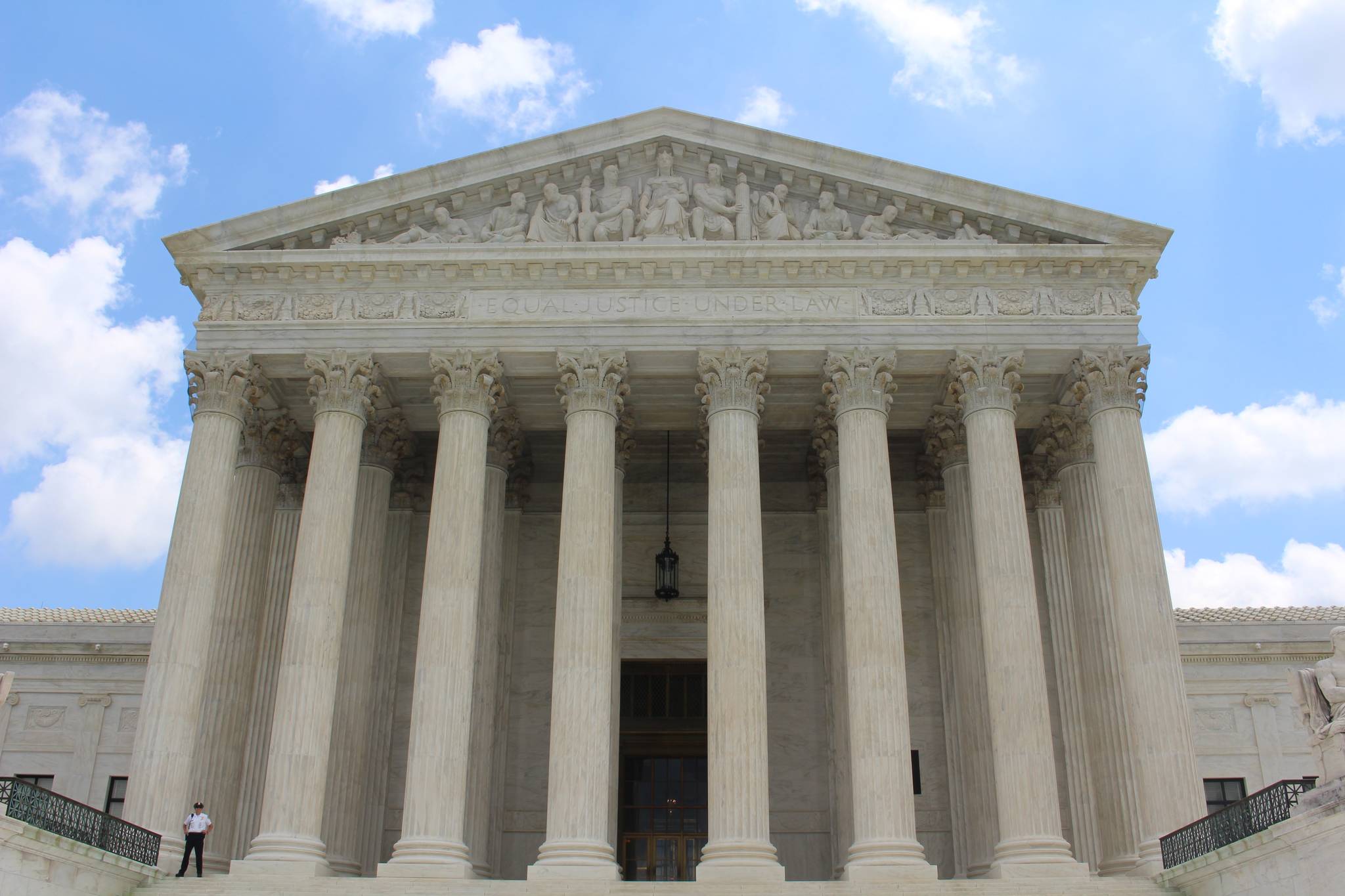Alaska’s campaign finance laws are getting a lot of outside attention.
Two cases concerning the state’s limits on campaign contributions are attracting the attention of national legal groups and have the potential to go to higher courts.
The U.S. Supreme Court Monday vacated a decision from the 9th Circuit Court of Appeals, ordering the lower court to revisit its decision upholding Alaska’s campaign contribution limits.
Alaska limits individual campaign contributions to $500 per year to a single candidate and $1,000 per year to a political group. The decision was sent back so the Court of Appeals could revisit whether the state’s campaign finance laws are consistent with previous Supreme Court decisions.
That case, Thompson v. Hebdon, was argued on behalf of three individuals who wanted to challenge Alaska’s campaign contribution limits. Plaintiffs in that argued that the Alaska Public Offices Commission’s denial of their contributions was an infringement of their First Amendment rights.
The Appeals Court decided in favor of the state but used precedent set in the 9th Circuit and not the Supreme Court.
The case was argued by Alliance Defending Freedom, a national legal advocacy group promoting religious freedom and freedom of speech issues.
The Supreme Court didn’t declare a victory for anyone,” John Bursch, senior counsel and vice president of Appellate Advocacy for ADF, said in a phone interview Tuesday. “The 9th Circuit should have looked at U.S. Supreme Court law and not 9th Circuit law.”
ADF argued the state’s campaign finance laws violated precedent set by other rulings stemming from the 2010 Citizens United v. Federal Elections Commission ruling. That ruling allowed corporate and union donations to political campaigns and set off a debate about the role of money in politics.
The Citizens United case found that limiting one’s ability to make contributions to political campaigns was a violation of the First Amendment. In Thompson v. Hebdon, ADF is arguing Alaska’s limits on contributions are an extension of that violation.
“Alaska is a large and sparsely populated state whose unique geography poses distinct and expensive challenges for candidates for elected office,” states ADF’s petition to the court.
ADF argued state limits on campaign contributions were far too low for effective campaigning.
It’s impossible to be able to speak about your message unless you have considerable money behind it.,” Bursch said.
Not having enough money to fund a campaign is not a violation of the First Amendment, Bursch said, but he said the government stopping people from contributing money to a campaign is.
Bursch said one of the plaintiffs in the case, David Thompson, a resident of Wisconsin, wanted to make a contribution to his brother-in-law, Wes Keller’s, campaign. However, he was told he could not because Keller had already accepted a total of $3,000 from nonresident donors, according to the petition.
Keller was a House Representative for District 10 until 2017 when he was defeated in the Republican primary by David Eastman, R-Wasilla.
ADF is not asking Alaska to write new campaign finance laws, Bursch said, “it simply needs to update those limits to be reflective of the modern value of money.”
The Supreme Court’s decision was an unsigned opinion ordering the lower court to revisit its decision. However, Justice Ruth Bader Ginsburg did write a one-paragraph opinion she signed her name to.
“Alaska has the second smallest Legislature in the country and derives approximately 90 percent of its revenues from one economic sector — the oil and gas industry,” Ginsburg wrote. “These characteristics make Alaska “highly, if not uniquely, vulnerable to corruption in politics and government.”
APOC is also facing a different suit also backed by a national legal group working to limit the role of money in politics.
On Nov. 4 an Anchorage Superior Court ruled APOC was not properly enforcing contribution limits to political campaigns. Plaintiffs in that case alleged two political groups had received single donations higher than those amounts and that APOC was not doing its job.
Lawyers for the plaintiffs in that case were from national legal-advocacy group Equal Citizens which wants to limit the role of money in politics. A statement from Equal Citizens said the suit was filed against APOC with the expressed intention of taking the case to the Supreme Court, “with the goal of eliminating Super PACs across the nation.”
Jason Harrow, chief counsel and director for Equal Citizens, previously told the Empire they were encouraging APOC to appeal the decision in order to take the case to a higher court.
Cori Mills, assistant attorney general at the Department of Law, told the Empire in an email Tuesday the decision would be appealed, and the deadline to do so was Dec. 9.
• Contact reporter Peter Segall at 523-2228 or psegall@juneauempire.com.

